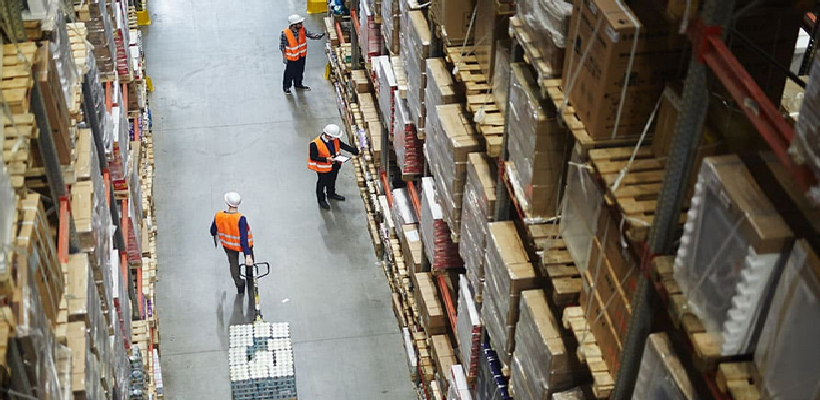
The industrial business landscape is constantly evolving, influenced by economic shifts, technological advancements, and regulatory changes. To stay competitive, industrial businesses must develop resilient strategies that address these challenges head-on while maximizing growth and efficiency. Here, we explore key strategies for overcoming market challenges and ensuring long-term success in the industrial sector.
1. Embrace Technological Innovation
Innovation is crucial in a sector where efficiency, productivity, and cost savings directly impact profitability. Technologies such as artificial intelligence (AI), the Internet of Things (IoT), and automation have redefined the industrial business landscape. Implementing these tools allows businesses to streamline operations, minimize errors, and gain actionable insights from data. IoT devices, for example, can monitor machinery and track performance in real-time, helping to prevent costly breakdowns by predicting maintenance needs.
Digital transformation also extends to workforce management. Training employees to work with these technologies ensures a smoother transition and maximizes ROI on new investments. By staying updated with industry trends and continuously improving operational processes, industrial businesses can secure a competitive edge and remain agile amid shifting market demands.
2. Focus on Supply Chain Resilience
Supply chain disruptions have become a significant concern in recent years. From the COVID-19 pandemic to geopolitical tensions, many factors can cause delays and shortages, impacting production timelines and profitability. Building a resilient supply chain requires diversification, so businesses are not overly reliant on a single supplier or region. Exploring alternatives, building relationships with multiple suppliers, and maintaining a buffer stock of critical components can reduce the risk of disruptions.
Additionally, utilizing technology to improve supply chain transparency enables businesses to track the entire journey of materials, from sourcing to final delivery. This visibility not only helps identify potential bottlenecks but also allows businesses to respond quickly to issues before they escalate. Furthermore, partnerships with logistics and supply chain specialists can offer additional support to manage the complexities of an increasingly global supply chain.
3. Adopt Sustainable Practices
As environmental concerns rise, sustainability is not just a regulatory requirement but also a competitive advantage. Many customers and investors are choosing to support companies that prioritize environmental, social, and governance (ESG) practices. By adopting sustainable practices—such as reducing waste, conserving energy, and minimizing emissions—industrial businesses can appeal to this growing market of eco-conscious consumers and partners.
Moreover, governments worldwide are implementing stricter environmental regulations, and staying compliant can avoid potential fines and reputational damage. Investing in renewable energy sources, recycling programs, and eco-friendly manufacturing processes can reduce costs in the long run while boosting the company’s image. Sustainable practices can be promoted to attract new customers, building trust and loyalty among a socially responsible consumer base.
4. Invest in Workforce Development
A skilled workforce is one of the most valuable assets in industrial business, and developing employees’ skills is essential for long-term success. The industry’s shift toward automation and advanced manufacturing technologies means that employees need to be adept at managing, operating, and troubleshooting these systems. Regular training programs help workers stay updated on the latest technology and best practices, increasing productivity and reducing operational errors.
Additionally, an emphasis on workforce development improves employee satisfaction and retention. With many industries facing skilled labor shortages, offering career growth opportunities and incentives can attract talent and minimize turnover. Employee engagement programs, professional development initiatives, and competitive benefits can make industrial businesses more attractive to skilled workers.
5. Leverage Data-Driven Decision-Making
In today’s data-rich environment, leveraging data effectively is key to making informed business decisions. Data analytics tools provide valuable insights into market trends, consumer behavior, and internal performance, which can guide strategic decisions and improve operational efficiency. For instance, predictive analytics can help forecast demand, allowing businesses to optimize inventory levels and production schedules, thereby reducing waste and costs.
In addition, data can help companies understand their customer base better. By analyzing customer preferences and purchasing patterns, businesses can tailor their offerings and marketing efforts to meet specific needs, improving customer satisfaction and loyalty. Real-time analytics also empower decision-makers to respond proactively to changes in the market, ensuring that the company remains adaptable in a competitive landscape.
6. Cultivate Strong Customer Relationships
Lastly, building and maintaining strong relationships with customers is essential for industrial business success. Listening to customer feedback and understanding their needs helps businesses develop products and services that address those needs effectively. Personalized service and reliable communication can create a loyal customer base, which is invaluable in highly competitive industries.
In conclusion, succeeding in the industrial sector requires a multifaceted approach that addresses technological, environmental, and operational challenges. By embracing innovation, strengthening the supply chain, prioritizing sustainability, developing the workforce, leveraging data, and cultivating customer relationships, industrial businesses can navigate market challenges and thrive in an ever-changing environment. These strategies enable companies to not only withstand disruptions but also position themselves for sustained growth in the future.